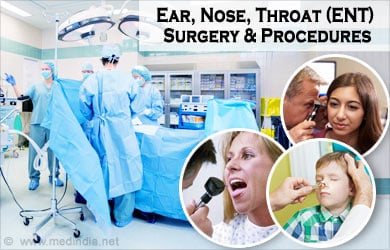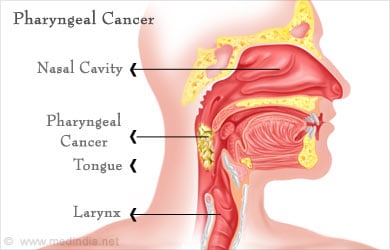What is ENT Surgery?
ENT (“Ear, Nose, Throat”) surgery is a medical specialty practiced by ENT surgeons. ‘Otolaryngologists’, as they are referred to in the medical community, can be a bit of a tongue twister for the lay person, which is why they are better known as ENT specialists. The term is also self-explanatory, as it derives from their area of expertise – the ear, nose and throat. This includes related structures like the sinuses and larynx. While general physicians may be able to treat problems that affect these areas, they can only offer medical treatment. ENT specialists are physicians trained in both the medical and surgical management of such health conditions, which is why they are also referred to as Head and Neck Surgeons.
ENT surgery is often necessary as a treatment for conditions that affect the ear, nose or throat, when medication and other non-invasive treatments are ineffective. Otorhinolaryngology or ENT is one of the most diverse medical specialties with various sub-specialties like laryngology, pediatric, otology, neurotology, implantation otology, oncology, rhinology and sinus surgery, among others. Because of the wide scope of ENT surgery, ENT surgery could be required to address a number of situations from treating tonsillitis in a child to treating cancer of the larynx in an adult. ENT surgery is also used in reconstructive and cosmetic surgery to correct deformities or injuries.
![Ear, Nose, Throat (ENT) Surgery and Procedures Ear, Nose, Throat (ENT) Surgery and Procedures]()
There are numerous types of ENT surgery used in the treatment of various conditions that affect the ear, nose and throat regions. Surgical procedures to treat benign conditions like sinusitis or tonsillitis are straightforward and simple, but there are also more complex procedures like a laryngectomy (surgical removal of the larynx) used to treat cancer of the larynx. Here are some of the most commonly performed ENT surgical procedures:
Adenoidectomy and tonsillectomy – An adenoidectomy is the surgical procedure to remove the adenoids, while a tonsillectomy is the procedure to remove the tonsils. These are two of the most frequently used ENT surgical procedures, especially in the treatment of children. An ENT surgeon will only recommend the procedures if necessary, when there is a problem of recurrent or persistent infection and inflammation. Tonsillectomies may also be necessary as a treatment for obstructive sleep apnea when the upper airway is partially or completely obstructed by the tonsils.
![Tonsillectomy Tonsillectomy]()
Ear surgery – This is also an extremely common type of surgery, with one of the most common of all ear surgeries being the myringotomy tube insertion. This is a procedure involving the insertion of a tube to treat and prevent recurrent infections of the inner ear. This is done to drain fluid accumulation in the middle ear as this is a cause of recurrent infections and can also cause impairment to hearing. Ear surgery also includes other procedures like tympanoplasty, which is a reconstructive surgery of the eardrum and stapedectomy, which part of the bone or the entire bone in the middle ear is removed.
Septoplasty – This is a procedure used to straighten the nasal septum. The nasal septum is a separating structure between the nasal cavities and is made up of cartilage and thin bone. If there is an abnormality in the septum, with it being crooked, this could impair one’s ability to breathe. In such a situation septoplasty is the best course of action. The procedure is usually conducted via the nasal openings, without the need for any external incision. The aim of the surgery is to remove or adjust the part of the septum that is crooked and obstructs airflow.
Sinus surgery – ENT surgery is commonly used in the treatment of sinus disorders that cannot be resolved with medication and lifestyle changes. Sinus surgery is used to remove any obstruction or blockages in the sinuses or to enlarge the sinus openings for easier drainage. In the past such surgery to treat sinusitis required external incisions, but this is no longer the case. Advanced endoscopic surgery has eliminated any need for external incisions and it has also greatly increased surgical precision.
Functional endoscopic sinus – Patients who suffer from recurrent sinus infections may need to undergo this minimally invasive procedure. A fiber optic scope and CT scanning are used to give the surgeon a clear picture of the affected area and to perform the restorative surgery. In more complicated cases however, surgeons may need to use a CT guided image system.
ENT Oncology – ENT surgery is often used in the treatment of malignant tumors or cancers that develop in the head and neck area, including salivary tumors, cancer of the pharynx or larynx, temporal bone carcinoma, oral cancer and others. ENT surgery to treat such cancers often involves microvascular and reconstructive surgery. Radical neck dissection is another operation that may be performed to remove cancer that has spread to regional neck lymph nodes.
Direct laryngoscopy – This procedure is used for both diagnostic and surgical treatment. An ENT surgeon will use a microscope or fiber optic endoscope in order to conduct an examination or operation on the larynx. Patients who suffer from certain problems that affect the vocal cords or who experience narrowing of the airway may need to undergo this procedure as it is used in the detection of lesions or foreign objects or to diagnose the presence of cancer of the larynx and also to remove benign lesions in the area.
Tracheotomy – This is a procedure that is often used in cases where the patient’s respiratory ability is seriously impaired and air cannot reach the lungs. In this procedure an opening is made in the trachea to allow air to reach the lungs.
As in the case of most of kinds of surgeries, you will need to prepare yourself for the procedure both physically and mentally. This is extremely important as it can influence the outcome of the procedure and in many cases will lower the risk of any complications.
Medical Preparation:
- You will need to undergo a complete physical examination and several routine tests like x-rays and blood tests to make sure that there is no physical condition that could interfere with or risk the outcome of surgery.
- Inform your doctor or ENT surgeon about any medications that you are currently taking. This is extremely important as some medications will need to be stopped while others may need to be substituted prior to surgery.
- Obesity is always a risk factor when undergoing surgery, so try to lose weight if you are overweight. Keep in mind that you should not attempt to follow any restrictive diet for during the month leading up to surgery.
- If you are on any blood thinning medication like warfarin, on aspirin or any anti-inflammatory medications, you will have to stop all such medication for at least one week prior to surgery as they would increase the risk of bleeding. Make it a point to discuss with your doctor before stopping medication.
![Anti-inflammatory Medications Anti-inflammatory Medications]()
- Smoking greatly increases the risk of various complications during surgery and it also impedes recovery. Try to quit or cut down at least a month before surgery.
- If you suffer from any gastric, bladder or gum and tooth problems make it a point to get them treated to minimize the risk of an infection later.
- If you have any kind of infection, make it a point to discuss the same with your doctor, as ideally, surgery should be performed only once any infection has resolved.
Self-Preparation:
- Make it a point to follow a healthy and well-balanced diet plan in the month leading up to surgery at the very least. Consult a nutritionist as well if you need to take any multivitamin or mineral supplements.
- Try to find someone to assist with daily household tasks like cooking and shopping for some time after the surgery.
- Try to get organized and keep things in easy reach prior to the surgery to avoid any difficulties after the procedure. Keep things you need in places where you won’t have to bend or reach too far.
- Make arrangements in advance for someone to help get you home after the procedure as you will not be able to drive a vehicle for at least a day following surgery.
Aftercare is crucial to a quick and full recovery and to this end there are certain things you should keep in mind:
- Avoid eating or drinking anything on your way home as the combination of anesthesia, vehicular motion and food can result in nausea or vomiting.
- Once you have gotten home, avoid eating anything until you are actually hungry. Make sure that your first meal is a light meal and avoid eating any foods that are hard to digest including oily, fatty and junk foods.
- Take all medications as directed by your health care provider. These would typically include pain medications and antibiotics.
- Do not neglect, avoid or delay postoperative follow-up with your ENT surgeon.
Because of the wide range of surgical procedures that are carried out within the field of ENT the risks and the seriousness of potential complications can vary significantly. Any surgical procedure carries the risks of bleeding and infection, but these risks are minimized with proper surgical technique and appropriate use of antibiotics. While some procedures have minimal risks, more complex procedures could carry significant risk. Some other risks from common ENT surgical procedures include injury to a tear duct, voice changes, nasal congestion, changes in smell and taste and more serious complications like damage to cranial and/or cervical nerves, obviously differing depending on the procedure.

















